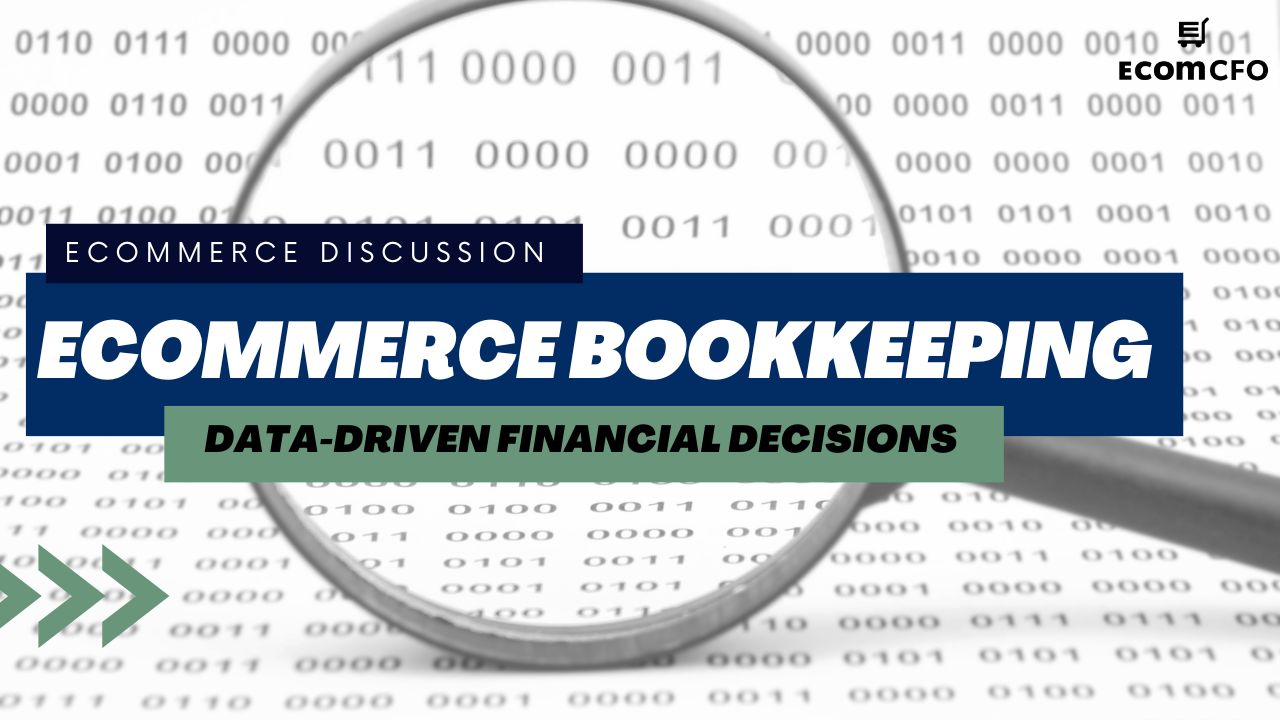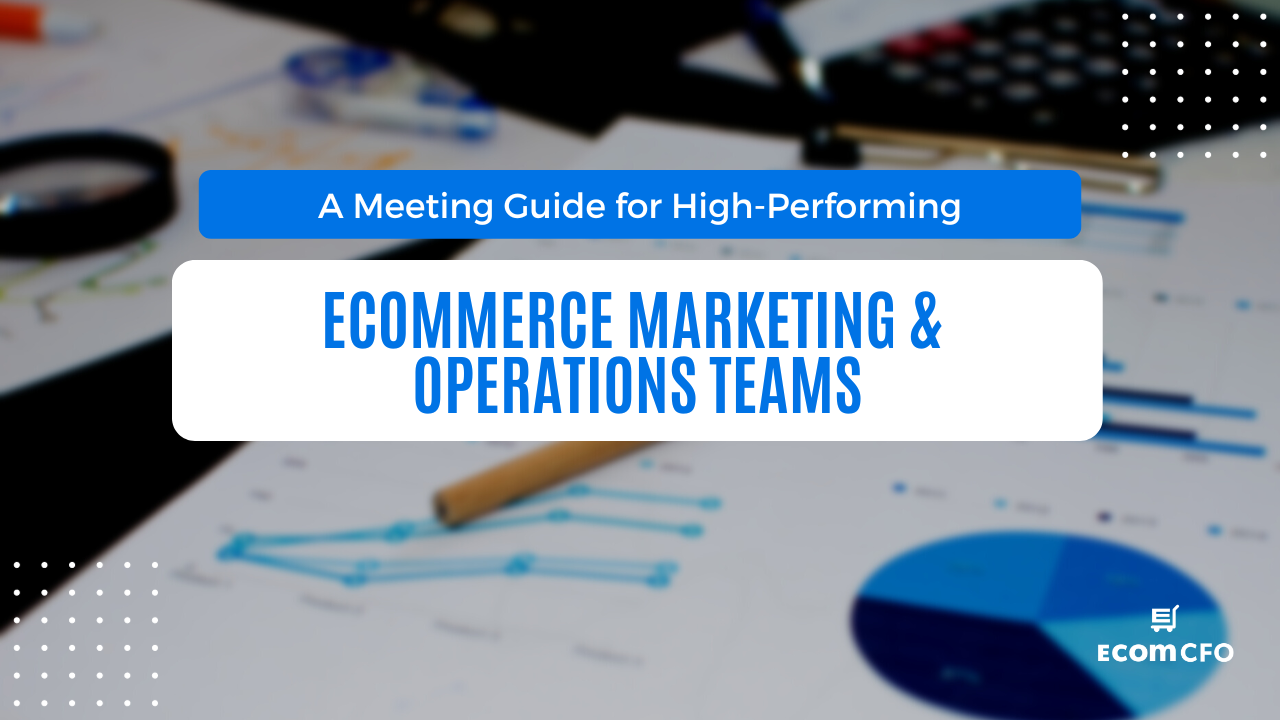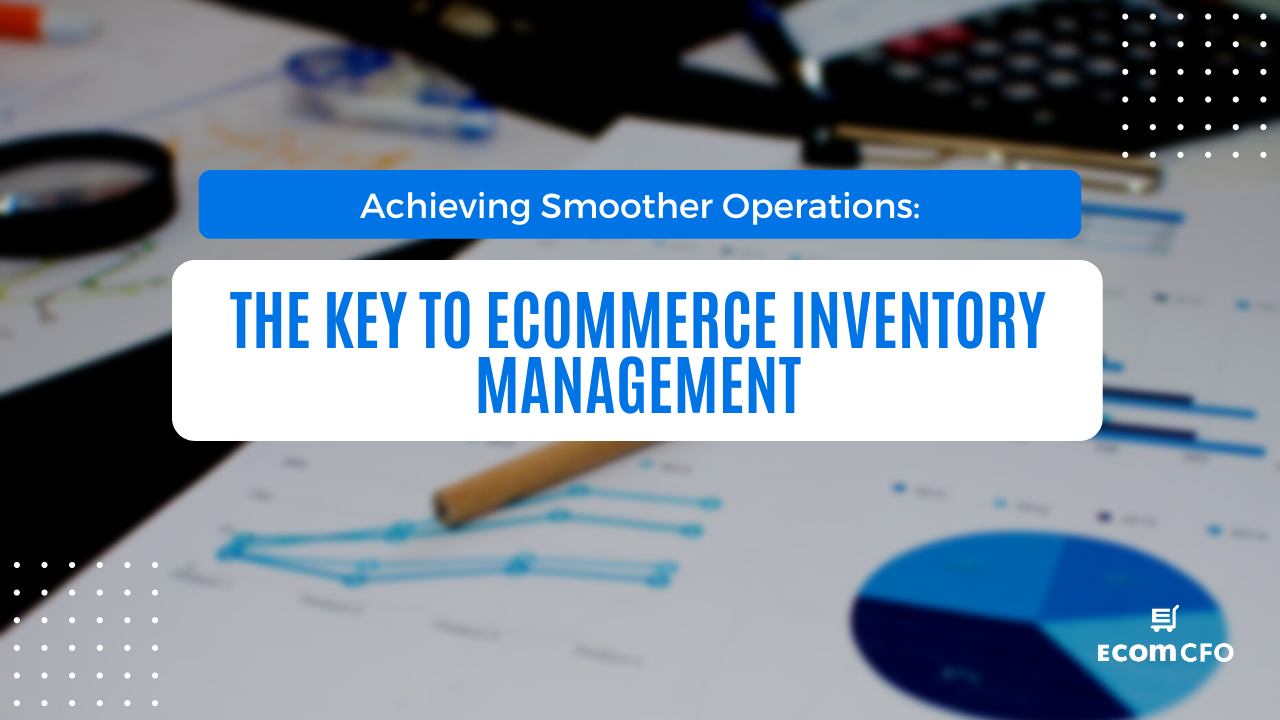What you will learn:
- What bookkeeping is and why better bookkeeping practices is essential for your ecommerce business
- The key differences (and similarities) between ecommerce bookkeeping and ecommerce accounting
- How to determine when it’s time to get additional bookkeeping support
We know data is the lifeblood of the rapidly expanding world of ecommerce. Without access to accurate, complete, and organized data sets, it is impossible for any ecommerce business to thrive.
Of course, there are many different categories of data an ecommerce business uses. Among the most important is financial and accounting data, which is typically kept in the firm’s “books.”
These books contain a lot of extremely important information, including margin, profitability, expenses, cash is flowing in, where it is flowing out, as well as other important details, such as the balances of assets, liabilities, and equity.
Some business owners—especially those witnessing their business grow at an incredible rate—tend to view ecommerce bookkeeping as a tedious chore.
Because they’re so focused on marketing and other essential activities, they don’t make time for the books. However, that doesn’t mean bookkeeping is something you as an owner can afford to ignore.
In this guide, we will discuss some of the most important things to consider about bookkeeping for ecommerce business owners, including how to know when it’s time to hire an ecommerce bookkeeper, the most important things to know about ecommerce accounting, and more.
What is Bookkeeping?
First, let’s start with a formal definition of what bookkeeping actually entails.
The (Oxford Languages) definition of bookkeeping is, simply, “the activity or occupation of keeping records of the financial affairs of a business.”
Our definition, in this case, is bookkeeping is a process that involves reconciling financial accounts, confirming that all financial information is accurate, and reflecting the most current state of the business.
There is a bookkeeping entry for every financial transaction that a business makes. If that business spends or earns money on something, that expenditure should be reflected in the business’s books. If the business receives or earns money from somewhere, that should also be reflected in the books, preferably as soon as possible.
Bookkeeping entries are often made in groups; for example, the entry for the sale of a product generally includes updates to several accounts:
- Revenue
- COGS
- Inventory
- Sales Tax
- Merchant Fees
The process of updating the books to reflect the most recent financial information available is known as “closing the books.” Depending on the structure of the business (and the nature of each account), bookkeeping entries might be made on a quarterly, monthly, weekly, or even daily basis.
Some ecommerce businesses will also use automated software to help reduce the need for manual bookkeeping (though it’s also a good idea to still periodically check the books).
Once all entries are up-to-date, business owners can use those the books to complete a variety of essential financial tasks, including tax prep, budgeting, reorganizing, and more.
How is Bookkeeping Different from Accounting?
The terms “bookkeeping” and “accounting” are sometimes used interchangeably but it is important to recognize the distinctions between these two practices.
There are plenty of bookkeepers who will do accounting, just as there are also plenty of accountants who engage in bookkeeping.
But, generally, accounting is a term that is usually used to describe more intensive, higher-level decision-making.
Accountants will often have to make critical decisions such as:
- Managing the cost of goods sold (and how they are reported)
- Inventory reconciliation (FIFO v LIFO, etc.)
- Depreciation management (straight-line versus weighted, etc.)
- Tax preparations
- Preparing for future financial events (acquisitions, conversions, etc.)
These are all high-level decisions that, ideally, will be made by someone who not only knows how to maintain a balance sheet but also has a deep understanding of finance.
Bookkeeping, on the other hand, is usually used to describe low level tasks such as invoice entries, journal entries, applying payments, expense categorization, etc. Many bookkeepers, though, operate at a very high level, though they don’t necessarily refer to themselves as bookkeepers or accountants.
Bookkeepers (and accountants) will usually use a variety of useful tools and checklists that help make it easier to manage new financial entries.
Again, the important point here is separating the person from the activity type. Bookkeeping and Accounting are different types of activities in which a single person can do one or both.
Why is Bookkeeping so Important for an Ecommerce Business?
Bookkeeping is important for every business—after all, without robust, reliable bookkeeping practices, your business will not be able to accurately keep track of its financial position.
But, there are several reasons why implementing excellent bookkeeping practices is especially important in the ecommerce sector:
Bookkeeping is the Foundation of an Ecommerce Business
Developing strong bookkeeping practices will help put your eCommerce business in a position to thrive.
Any business that neglects its basic bookkeeping obligations will quickly find itself in a financial mess and could face a variety of other consequences (such as getting audited by the IRS).
Additionally, better bookkeeping practices can deflect some of the workflow away from the CFO or CEO which can help save the enterprise a considerable amount of money.
Unfortunately, because bookkeeping consists of many tasks business owners typically don’t want to do—including categorizing transactions, reconciling statements, distributing payments, etc.—it tends to get put on the back burner for later.
This is especially true during the earlier stages of the business, where owners will typically be focused entirely on marketing, creative, and managing ad spend..
In response, a large portion of ecommerce business owners will direct their bookkeeping needs to someone else. At first, they might pursue a simple short-term solution, such as hiring someone on Upwork or other platforms to reduce costs.
But eventually, books will become more complicated and the need for a more professional platform will increase.
Better Bookkeeping Helps Make Founders’ and CFOs’ Lives Easier
When bookkeeping is outsourced effectively, decisions can be made faster and vendors and employees can be paid sooner. That provides a direct benefit to everyone involved.
When deciding whether it’s time to outsource, it is important to consider the opportunity cost that comes with keeping things as they are.
This is particularly true if a CFO or founder of the company is currently in charge of the bookkeeping process, which is common among early-stage businesses that are trying to bootstrap as much as they possibly can.
The vast majority of founders are capable of doing basic bookkeeping tasks. But—considering their time is better spent elsewhere—this will usually be a very inefficient use of their limited time.
In other words, improved ecommerce bookkeeping practices can help businesses use their limited resources in a more effective way.
Bookkeeping Enables Better, Data-Driven Decision-Making
Bookkeeping is necessary for a variety of reasons, such as preparing your business to file its taxes. But overall, the primary benefit of bookkeeping is that it helps a business make better decisions.
This is especially important in the ecommerce sector, where making just a minor improvement to financial data can yield a dramatic competitive edge. But in order to tap into this critical competitive edge, it will be critical for all books to be as up to date as possible.
Getting Organized
If your books are currently a mess, you might not be sure where to get started with the bookkeeping process. And that’s okay.
Generally, the best way to get started is with a detailed monthly “close” checklist that includes every anticipated bookkeeping entry. This can include:
- Checking to make sure all payments went through
- Checking to see if any bills needed to be added to Bill.com (or other accounts)
- Pushing transactions through QuickBooks
- Managing autopays
- Coordinating and reconciling all accounts
- Communicating with clients and vendors
Having an accurate close list will help make the bookkeeping process considerably easier. Incorporating common accounting tools, such as the updated QuickBooks dashboard, can make a major difference.
At the very least, taking a little bit of time to get organized will make it much easier to evaluate your current bookkeeping needs.
When is it Time to Hire an Outside Bookkeeper?
Of course, knowing the exact moment you want to hire an outside bookkeeper will depend on many different factors, including the structure of your business, the complexity of your revenue streams, and the amount of revenue you receive each year.
As you’d expect, an ecommerce business that has just one source of revenue and very few expenses will have fewer bookkeeping needs than a business with complex revenue streams and expenses, each flowing from a different account.
However, as a very general rule of thumb—especially within the ecommerce industry—hitting the $1 million annual revenue mark is often a sign that it is time to hire a professional bookkeeper. At the very least, this is likely the point in your business where you could make significantly more focusing on other components of the business (prospecting, marketing, fulfilling orders, etc.) than it would cost to hire a bookkeeper.
It’s also a good idea to take some time to look at your personal situation.
- Are you comfortable managing your books on your own?
- How complicated is your current bookkeeping situation?
- If you were audited (and about 1% of people are audited every year), would you be confident your books would pass an audit?
By taking the time to develop a complete bookkeeping strategy, your ecommerce business will be able to set itself up for long-term success. Fortunately, there are a lot of great bookkeeping resources and platforms available—and they are likely much more affordable than you’d initially assume.





